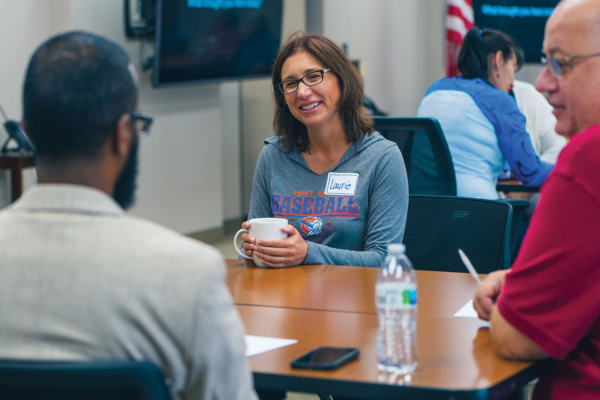Undercutting Our Democracy Through Vouchers
Type:
Article
Topics:
School Administrator Magazine
January 01, 2018
 My View
My View
PRIVATE SCHOOL VOUCHERS always have been a bad idea, but with our democracy under considerable stress today,
privatization schemes are particularly dangerous.
In the 18th century, the American founders were deeply concerned about the problem of the demagogue in their fledgling democracy. How would the new experiment in self-governance not fall prey to a huckster who fooled the populace? Thomas Jefferson argued that general education was necessary to “enable every man to judge for himself what will secure or endanger his freedom.” In the 20th century, as democracies were falling to fascism across the globe, Franklin Roosevelt declared education was “the real safeguard of democracy.”
Today, democracy is under threat again. Polls find a quarter of young people believe that democracy is a bad or very bad way of running a society. On college campuses, speakers are increasingly shouted down. And, most concerning of all, a candidate who routinely flouted such liberal democratic norms as freedom of religion, freedom of the press and the independence of judiciary managed to win the presidency.
Finding Commonalities
At this moment of peril, private school vouchers, fiercely advocated by the current administration, would undercut the democratic mission of public education in several respects.First, democracy requires discerning citizens who can sort fact from fiction; yet vouchers often produce poor academic results for students. For years, the research on private school vouchers was mixed. But the most recent studies — in Ohio, Indiana and Louisiana — are quite negative. Economist Douglas Harris, who directs the education research program at Tulane University’s Murphy Institute, described Louisiana’s outcomes as “some of the worse results ever observed for any program or policy.”
Second, democracy works best when citizens recognize their common worth and come together to discuss issues of mutual concern from a point of respect. But in nation after nation that has tried private school vouchers — including Sweden, Chile, New Zealand and the Netherlands — school segregation by race and income has increased. When schools are segregated, it is easier for politicians to demonize and scapegoat minorities on the path to power. Segregated schools also undermine the democratic message that, in America, we are all supposed to have equal political voice.
Third, unlike public schools, private schools are not democratically controlled and so do not model for students the give and take of democracy. In Washington, D.C., for example, the voucher program will not even disclose the amount of public money that various private schools receive. As journalist Nikole Hannah-Jones writes in her New York Times Magazine article “Have We Lost Sight of the Promise of Public Schools?” for the ancient Athenians and Romans, “‘Public’ stood not just for how something was financed — with the tax dollars of citizens — but for a communal ownership of institutions and for a society that privileged the common good over individual advancement.”
Finally, public education was founded with the explicit purpose of instilling a love of liberal democratic values such as freedom of religion, the freedom of the press and the rights of political minorities. Private schools, 80 percent of which are religious, do not have such a purpose. Their primary mission is to inculcate in students a religious faith, not faith in democracy.
Public Improvements
To be sure, public schools themselves need to do a better job of preserving our democratic values. As Clifford Janey, former superintendent of public schools in Rochester, N.Y., and Washington, D.C., and I have written in a report titled “Putting Democracy Back into Public Education,” we need to strengthen the civics curriculum, better integrate students of different racial and economic backgrounds through public school choice, and better model democratic values for students by giving greater voice in education policy decisions to teachers, parents and communities.But at this time of great peril, we should work to improve our system of public education to better fulfill its purpose of strengthening our democracy rather than outsourcing that goal to private schools, which are not themselves democratically controlled.
Author
Advertisement
Advertisement
Advertisement
Advertisement


